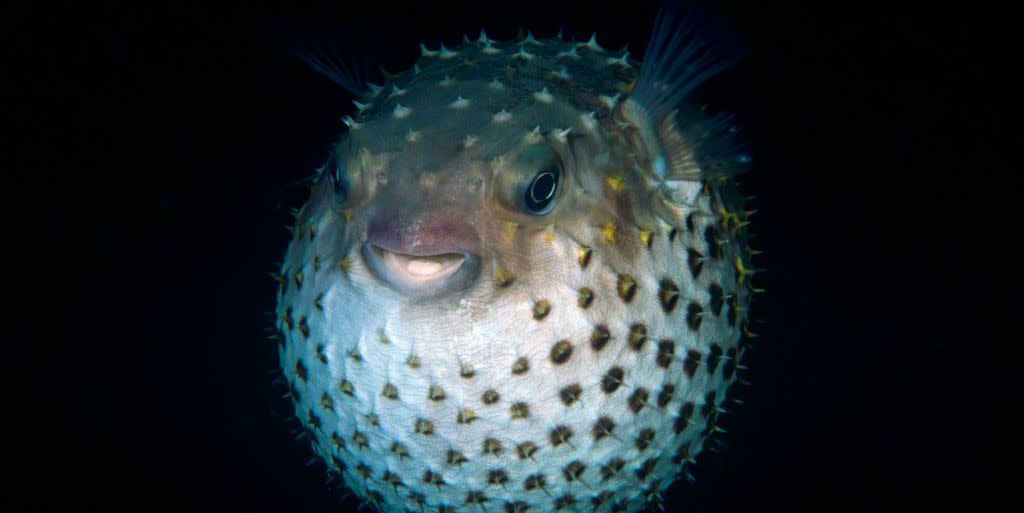Pufferfish Must Be Expertly Prepared So They Don't Poison You. Thanks to Climate Change, That's Getting Harder.

Japanese pufferfish are among the most prized and notorious delicacies in the sea. A single kilogram of the fish can go for as much as 30,000 yen ($264.80)-but it can be deadly if not properly prepared.
Because of global warming, a scientist says, poisonings are going to become more common that ever.
There are 50 species of pufferfish, also known as fugu. The Japanese government has declared only 22 of them to be edible, and even these come with restrictions-butchers and chefs working with pufferfish must be trained and licensed to remove the fish's most toxic elements, the liver and reproductive organs.
Debates have gone back and forth for years in Japanese society over the regulation of fugu. In 2012, the city government of Tokyo announced a loosening of restrictions needed to serve the fish, angering some who had devoted years of study (and money) to gain the right to do so before. Poisonings are rare, but not unheard of.
But global warming offers a new threat-mutation. Hiroshi Takahashi, an associate professor at the National Fisheries University, has noticed a trend over the last six years of increasing numbers of hybrid pufferfish. Waters near Japan, like the rest of the world, have been warming due to human-created climate change. Across the planet these warming waters have changed life under the sea, ranging from coral to pufferfish.
Some of the fish, a breed known as T. stictonotus, have been forced to go towards northern waters. Waiting for them their are their cousins, known as T. snyderi. Together, the two breeds have been mating and creating new types of pufferfish.
The problem arises from the fact that, among the several breeds, there's no consistency where the toxins lie. So when a hybrid comes along that can pass for not one but two breeds, the chance for a deadly mistake increases.
The Japanese government has been collecting information on the hybrid fish since September, according to Reuters. The fish are currently under local regulation, so each Japanese prefecture will have to decide on how the new fish will be treated soon.
Climate change isn't just effecting fish-a recent study found that maize, also known as corn, could see its crop yields drops by as much as 50 percent if global targets on climate change aren't reached.
Source: Reuters
('You Might Also Like',)

